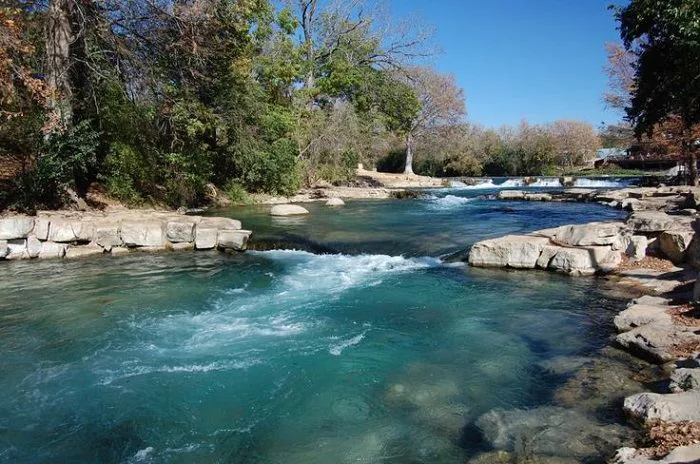Water quality is essential to a healthy environment and lifestyle. Texas, known for its vast landscapes and diverse ecosystems, offers some of the cleanest water in the United States. But what exactly makes the water in Texas stand out? In this article, we explore the top locations in Texas where you can find the cleanest water, how it’s maintained, and why it’s important for both residents and visitors.
Why Is Clean Water Important?
Clean water plays a significant role in public health, economic prosperity, and environmental sustainability. In the United States, access to clean water is a key determinant of the quality of life. For Texas, one of the largest states in the country, the availability of clean water sources varies by region.
- Health Implications: Safe drinking water helps prevent waterborne diseases.
- Environmental Benefits: Clean water supports local wildlife and aquatic ecosystems.
- Economic Impact: Agriculture, tourism, and industries depend on clean water for their operations.
Top 10 Areas with the Cleanest Water in Texas
Texas boasts some remarkable water sources known for their purity. Here are the top 10 places in Texas with the cleanest water:
- Barton Springs, Austin: Famous for its crystal-clear spring water, Barton Springs is a natural spring located in Zilker Park, Austin. It’s known for being one of the cleanest and most iconic water sources in Texas.
- The San Marcos River: This river, flowing through the beautiful Texas Hill Country, is renowned for its pristine waters and is a popular destination for kayaking and tubing.
- Lake Texoma: Situated on the border of Texas and Oklahoma, Lake Texoma offers clean, clear water ideal for boating and fishing.
- Canyon Lake: Known for its clear waters and scenic views, Canyon Lake provides a perfect setting for water activities like paddleboarding and swimming.
- Lake Travis: Near Austin, Lake Travis is a favorite for boating and recreational activities, with its clean, blue waters drawing tourists year-round.
- Lake Livingston: A 93-mile-long freshwater lake, Lake Livingston offers crystal-clear water, making it a prime spot for swimming, fishing, and camping.
- The Frio River: Flowing through the Hill Country, the Frio River is well-known for its cool, clear, and refreshing waters that attract swimmers and nature lovers.
- Guadalupe River: The Guadalupe River offers some of the best clean waters in Texas, with its beautiful blue-green hue and flowing current.
- Clear Lake: Located in Houston, Clear Lake has undergone significant water quality improvements and is one of the cleanest water bodies in the Houston area.
- Choke Canyon Reservoir: This freshwater reservoir near Three Rivers has been praised for its high water quality, supporting both recreational activities and local ecosystems.
How Is Water Quality Measured?
Water quality is measured by several factors:
- Clarity: The transparency of the water, indicating the level of suspended particles.
- pH Level: Water should have a neutral pH for optimal safety and taste.
- Contaminant Levels: This includes harmful substances like bacteria, chemicals, and metals.
- Temperature: Water temperature can affect the health of aquatic life and the suitability for recreational activities.
Factors Contributing to Clean Water in Texas
Various factors contribute to the cleanliness of water sources in Texas:
- Natural Filtration: Many of Texas’ springs and rivers benefit from natural filtration systems, ensuring pure, clean water.
- Water Conservation Efforts: Many communities in Texas focus on maintaining water quality through conservation programs and regulations.
- State Regulations: The Texas Commission on Environmental Quality (TCEQ) monitors and enforces water quality standards across the state.
- Local Initiatives: Local governments and organizations often work together to improve and maintain water quality in rivers, lakes, and reservoirs.
How Clean Water Impacts Tourism and Recreation
Tourism and recreation in Texas are significantly impacted by the quality of water. Clean water sources not only attract locals but also visitors from around the world. Water-based activities like boating, fishing, swimming, and tubing are highly dependent on the quality of water, and Texas is home to many pristine spots for these activities.
- Attraction of Nature Lovers: Clean water bodies attract nature lovers, who appreciate the serene beauty of Texas’ waterways.
- Economic Boost: Water recreation boosts the local economy by drawing tourists who spend on accommodation, dining, and activities.
Conclusion
In conclusion, Texas offers some of the cleanest water in the country, thanks to a combination of natural sources, conservation efforts, and strict regulatory measures. From Barton Springs in Austin to Lake Texoma near the Oklahoma border, these waters are vital to the state’s ecological health, economy, and recreational activities.
If you’re looking to experience clean, refreshing water in Texas, these locations are among the best you can visit. Always remember that preserving water quality is crucial for future generations, so we must continue to protect these valuable resources.

